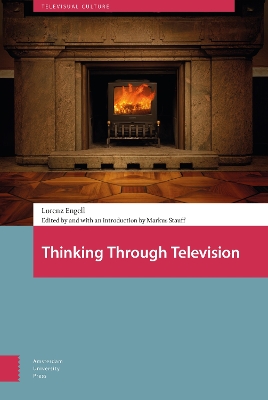Televisual Culture
1 primary work
Book 0
Media philosophy can only be found and revealed in media themselves. The essays collected in this volume thus approach television as a medium both of thought and of action in its own right. Through its specific forms and practices, television implements and reflects on aspects of time, such as synchronicity and succession, seriality and event, history and memory. Additionally, television stages new forms of thinking causality and agency, subject-object relations, tactility, choice, and other founding concepts of everyday experience as well as of outstanding philosophical relevance. In the course of media evolution, television organizes the transition from the analogue to the digital. Last not least, by conceiving of itself, television offers a source of finally thinking through television.
